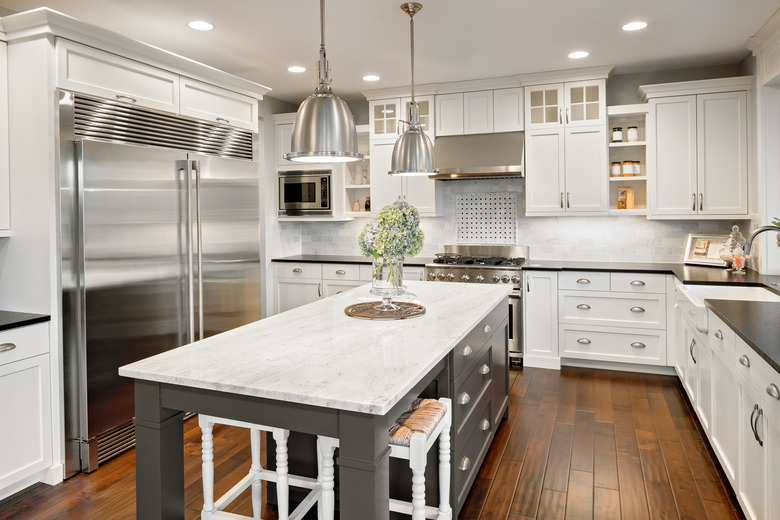Freezer Vs. Refrigerator
An extra freezer or refrigerator can be beneficial to have for many reasons, from storing large cuts of meat to enjoy at an annual holiday or family gathering to keeping extra groceries and beverages cold until ready to use. The cold food-storage appliance can extend your purchasing power for unexpected deals and other reasons.
But it's not always clear whether a freezer would be best or if a refrigerator with smaller freezer capabilities would work better for your situation. Knowing the difference between the freezer and the refrigerator can help you narrow down your choices.
Freezer vs. Refrigerator
The main difference between the freezer vs. the refrigerator is the temperature. Freezer and refrigerator temperatures vary widely. A refrigerator is set between 35- and 40-degrees Fahrenheit. According to the Food and Drug Administration, a freezer must be at 0 degrees Fahrenheit to keep food at a safe temperature for it to be stored and eaten later.
The freezer and refrigerator settings allow you to adjust the temperature and other controls of the appliance. If a freezer or refrigerator is installed outside, in a garage or on a porch, the temperature may need to be adjusted to keep the appliance at the appropriate food-safe temperature.
How a Fridge Works
When it comes to keeping food at the correct temperature, there is no difference between the freezer and refrigerator. The appliance's compressor circulates the refrigerant throughout the appliance's system. The condenser on the outside of the fridge in the back assists in releasing the heat that builds in the refrigerator, according to Mr. Appliance. The thermostat inside of the refrigerator regulates the temperature and engages the cooling cycle as needed.
Once engaged, the compressor draws the cold refrigerant in and condenses it into a gas. This is pushed to the condenser, which reverts it to a liquid state by cooling it down. It then makes its way to the evaporator. The evaporator in the refrigerator is meant to vaporize the liquid refrigerant that absorbs the heat through the walls of the appliance. When the interior of the refrigerator and attached freezer compartments are not properly cooling, then the evaporator may be the culprit.
The evaporator and its important fan are tucked behind the back panel. If you don't hear a whirring sound or the refrigerator is eerily quiet, then you may need to repair or replace the evaporator fan.
Common Mistakes for Storing Food
A busy household may require a lot of food, leading to the refrigerator and/or freezer getting overloaded with perishables. Both appliances work better when they are not stuffed to overflowing but about two-thirds full. The items within the freezer and refrigerator compartments help keep the appliance at the ideal temperature. Each item works as a sort of thermal battery.
Root vegetables, such as carrots, radishes, tomatoes and peppers, can deteriorate faster or lose their flavor when stored in the refrigerator. Items stored in zip-top freezer bags should be used sooner than later. If you plan to freeze food for more than a month, wrap it in foil. The key is to insulate the food from air and frost.
